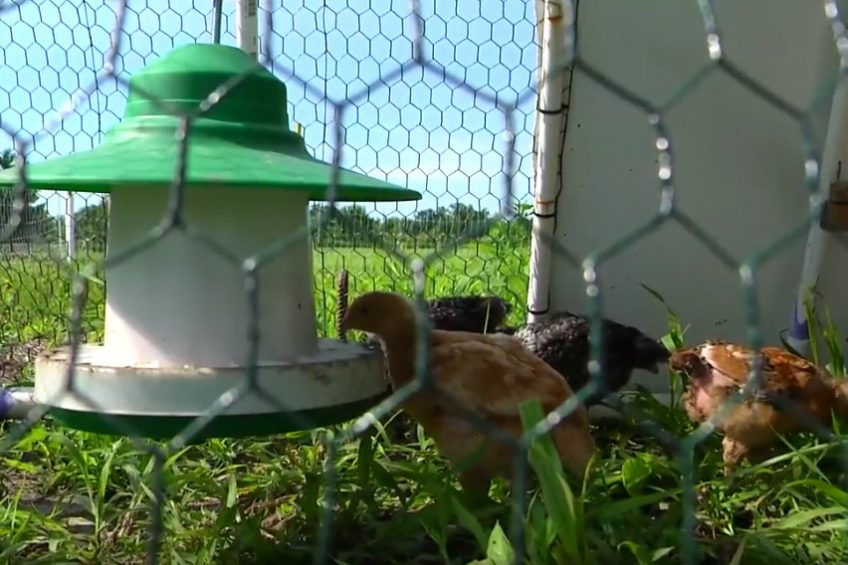Integrating chickens into vegetable production

Researchers are exploring how the integration of chickens into vegetable crop rotations may spark environmental and economic benefits for growers.
The research, which is being carried out at Iowa State University, is looking at whether such practices can balance a range of concerns, including environmental sustainability, costs and food and animal safety.
Currently in its second year, researchers are testing what happens when a flock of broiler chickens lives on a vegetable field for part of the year. The birds forage on the plant matter left behind after the vegetables are harvested and fertilise the soil with manure. The integrated approach could reduce off-farm inputs and also provide producers with sustainable crop rotation options.
3 different systems are being trialled on a half-acre of land at the university’s research farm:
- A vegetable crop – one of several varieties of lettuce or broccoli – early in the growing season, followed by the chickens, which are then followed by a cover crop later in the year.
- A vegetable crop, followed by 2 months of a cover crop, with the chickens foraging on the land later in the year
- Vegetables, followed by cover crops, with no chickens.
Also read: Sustainability depends on viewpoint
The trial is involving 40 broilers, which live in 4 mobile coops that the researchers move every day. Moving them ensures the birds have access to fresh forage and keeps their manure from concentrating on any particular part of the field. An electric fence surrounds the field to keep out predators.
Collecting data on the birds
Birds are weighed periodically to collect data on how efficiently they convert food into body mass and detailed logs are taken on how foraging impacts the birds’ health and performance.
Ajay Nair, associate professor of horticulture, said the researchers were looking at several facets associated with sustainability. Nitrogen and phosphorous deposited in the soil from the chicken manure could alleviate some of the need for fertiliser application, while working cover crops into the system can prevent the loss of nutrients into waterways.
Economically stable
“We might come up with results that really help the soil, but if the system is not economically stable, I doubt growers will be willing to adopt it because it has to work for their bottom lines as well,” he said.
The ongoing research is currently supported through a Sustainable Agriculture Research and Education grant. Additional funding is being sought to investigate the animal health and integrated pest management aspects of the research.












